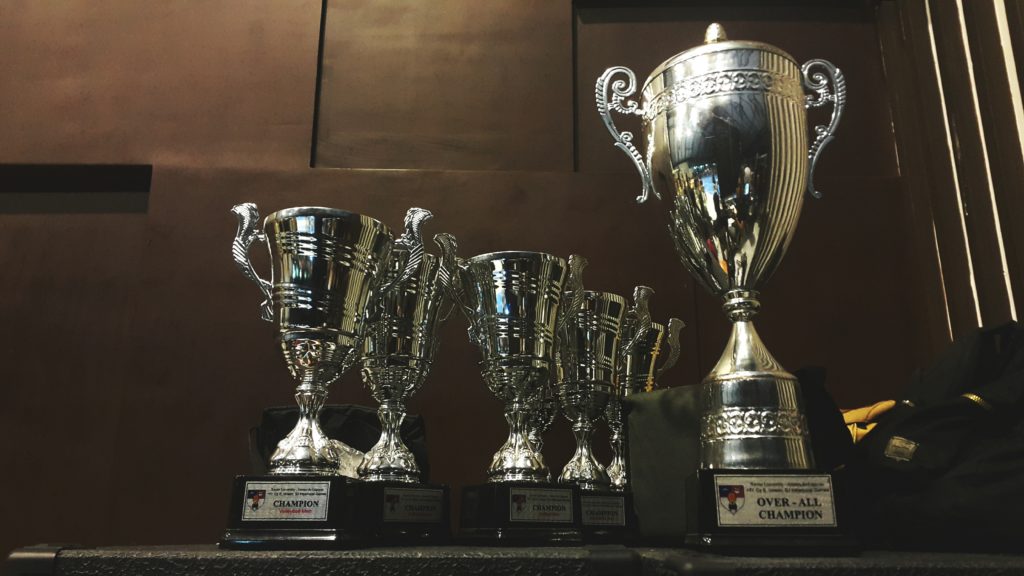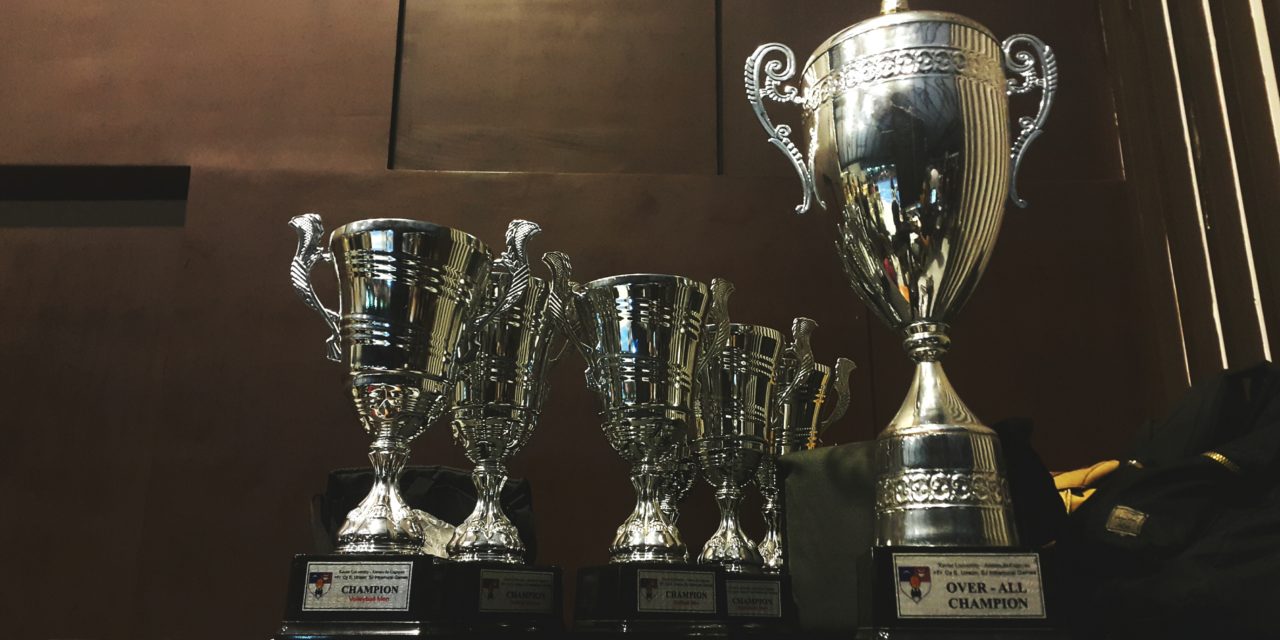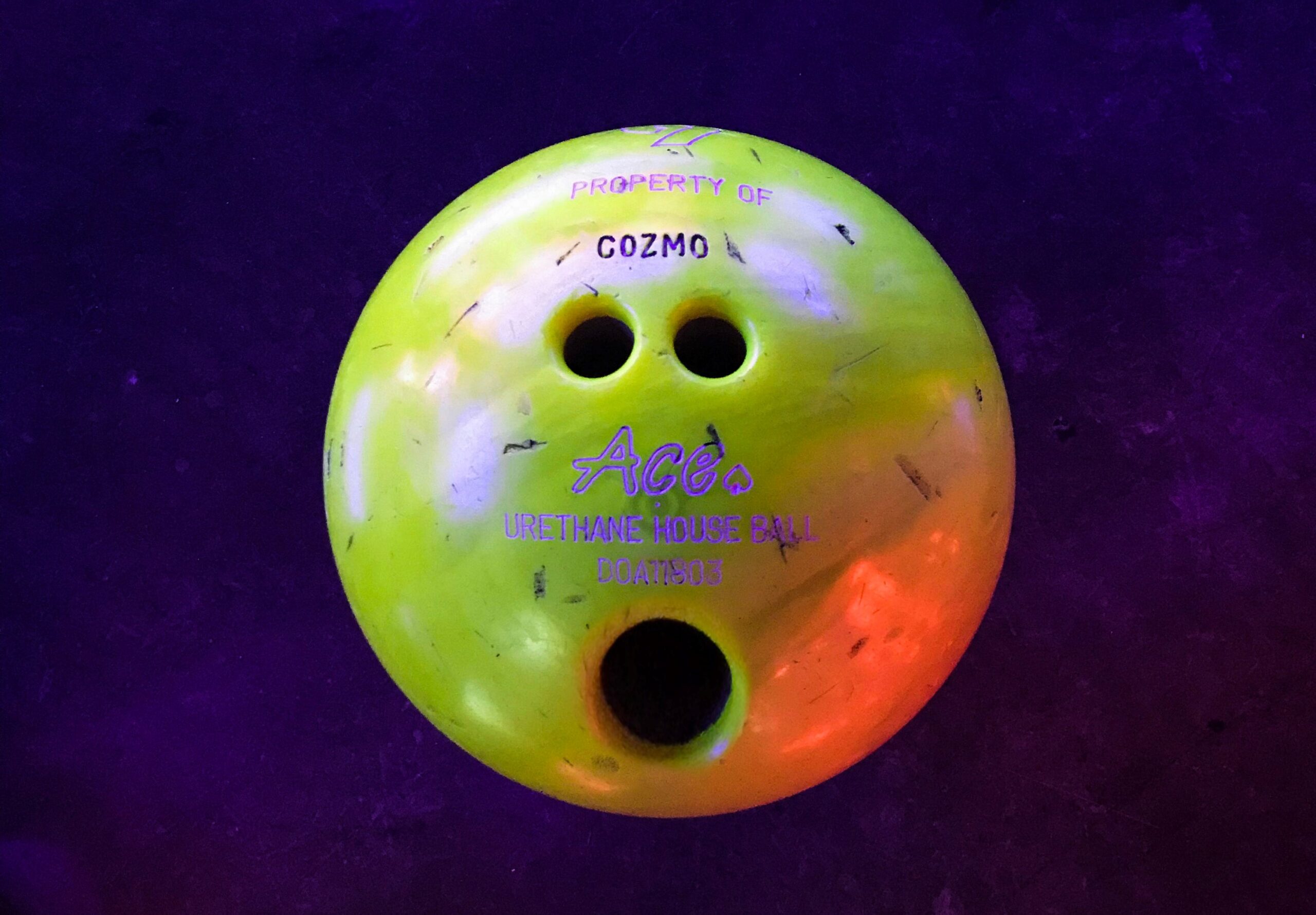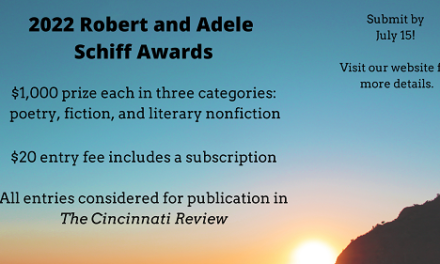
Winners of the Eleventh Annual Robert and Adele Schiff Awards in Poetry and Prose
Bernard Ferguson for his poem “you’re welcome”
(chosen by Rebecca Lindenberg)
Julie Marie Wade for her essay “Perfect Hands”
(chosen by Michael Griffith)
Thank you to everyone who entered our contest this year! We enjoyed reading your wonderful poems, stories, and essays.
Ferguson and Wade will each receive a $1000 prize, and their pieces will appear in the Spring 2020 issue of The Cincinnati Review. Read more below about the inspiration behind their work.
We also want to recognize all the honorable mentions:
David Baker
Leslie Bienen
Kathy Flann
Jorge Iglesias
David Keplinger
Terrance Manning Jr.
Max McDonough
Cindy Juyoung Ok
Lara Palmqvist
Andrew Porter
Beth Richards
Craig Van Rooyen
We’d also like to thank our readers Caitlin Doyle and Jess Jelsma Masterton for their assistance during this year’s contest period.
On Bernard Ferguson’s poem “you’re welcome”
Poetry Editor Rebecca Lindenberg: The poem “you’re welcome” represents, in its long and breathless lines rich with a splendid mix of sass and verve and fierce reflection, a rush of feeling; first, we encounter the strong feelings of characters as reported in their own words, and then the speaker’s strong reactions to those, which un-petal in the poem almost like the peonies mentioned halfway through. But parallel to how the peony tattoo never came to be, the speaker’s strong feelings go unexpressed at the restaurant table. They appear here, in the poem, and seem to be happening in real time, but the “now” of the poem is not the same as the “now” of the dinner with friends. In fact, the speaker’s responses are emerging in the poem almost the way the image of a broken bone emerges in the developing X-ray—such a potent image in this piece. The same chemical compounds, the poem helps us know, can penetrate us differently—as the violence of a bullet, or as the healing inquiry of an X-ray, meant to diagnose the unseen without wounding. This poem, it seems to me, works similarly, unsettling its own language, its own images, its own assertions, until in the end, the self and its memory and the bullet and the blooming flower all collapse into a single image that is at once dynamic and still, at once beautiful and terrible, at once then and now, finishing the poem’s work of showing us that finally everything is both constructed and complicated by the use and meaning (or more aptly meanings) we make of it.

Bernard Ferguson on his winning poem: The writing of the poem began the same as the poem’s narrative: I was at Congee Village, a Chinese restaurant in the Lower East Side, sharing a meal with Nancy and Janelle—two friends I love and deeply adore. The decor of the restaurant was quite enchanting, and Nancy and Janelle (Chinese and Singaporean, respectively) spent a long time speaking to how the restaurant—its fixtures, its food, the dumplings—reminded them of particulars from their childhood. Then Nancy said something like, The entire world should have gratitude for Chinese ingenuity. She made a list that included oolong tea, the silk of insects, paper, and gunpowder. You wouldn’t have beautiful fireworks without China. You’re welcome. It turns out Nancy has this rather precise and sarcastic way of saying “you’re welcome” that I really never get tired of hearing, and when she said it that night, a kind of chemistry began in my body. My arms began to sweat a little, and my heartbeat grew dramatic as I remembered the sounds outside my bedroom window in Nassau, and how, for all of my childhood, I never learned to tell the difference between the pop of a firecracker and the bang of a gun.
There was a spooky sort of association taking place in my thinking, an alchemical kind of reaction in what felt like my belly. The fear of guns from my childhood rubbed against the beauty of firework,s which then rubbed against a friend that I adore telling me you’re welcome for all of it. My body, I think, became a vessel for history and nostalgia and a weave of emotions to flow through. I felt like a wind chime, and breeze blew through me like an arrow. And it turns out the best canvas, the most marvelous tool we have available to capture that arrow, that twisting of wind—a place where we can lay history, childhood, and a present moment side-by-side—is poetry.
I have a big time gratitude—a gratitude that begins in the belly—for The Cincinnati Review’s belief in this poem.
Bernard Ferguson (he/him) is a Bahamian poet, essayist, and MFA candidate at NYU. He’s the winner of the 2019 Hurston/Wright College Writers Award and a winner of the 2019 92Y Discovery Contest. He has work published or forthcoming in the New Yorker, Paris Review, Southampton Review, The Common, SLICE Magazine, Pinwheel, Winter Tangerine, and the Best New Poets 2017 anthology, among others. He hopes you tell him about your wonder.
On Julie Marie Wade’s essay “Perfect Hands”
Fiction Editor Michael Griffith: In this intricately structured and utterly persuasive essay, “Perfect Hands,” Julie Marie Wade subtly and movingly excavates a fraught family history. She devises a vessel that’s perfectly suited to the complexity and ambiguity of its contents.

Julie Marie Wade on her winning essay: For the past few years, I’ve been working sporadically on a collection of essays I hope one day to finish and am likely to title The Regulars once I do. Recently, someone asked me, “Do you really have another book in you about your childhood and coming of age? Is there really any more to tell?” One longish answer to that question is that I’ve been encouraging my students to write the things they thought they would never write—what seems too complicated or deeply interior to attempt to bring to the page. I don’t want to be a hypocrite. My students take big aesthetic and emotional risks, and I want to join them in that enterprise. I want to nudge myself into those difficult spaces in my past and present that seem at first to defy articulation. In the case of “Perfect Hands,” this includes writing for the first time about my pervasive but undiagnosed experience with childhood OCD. One medium-length answer is that I am drawn to the bildungsroman because it is a genre I can never hope to master, a genre as elastic in approach and capacious in content as identity formation itself. Every story of self is ultimately an origin story, isn’t it? The shortest answer is yes: there is always more to tell.
Julie Marie Wade teaches poetry, creative nonfiction, and hybrid forms in the creative writing program at Florida International University. She is the author of ten collections of poetry and prose—most recently Same-Sexy Marriage: A Novella in Poems (A Midsummer Night’s Press, 2018) and The Unrhymables: Collaborations in Prose (Noctuary Press, 2019), co-authored with Denise Duhamel. A recipient of the Lambda Literary Award for Lesbian Memoir and grants from the Kentucky Arts Council and the Barbara Deming Memorial Fund, Wade makes her home on Hollywood Beach with Angie Griffin and their two cats. In 2020, The Ohio State University Press will publish her new volume of lyric essays, Just an Ordinary Woman Breathing.
To order the prizewinning issue (due out in May), check out our subscription options.











